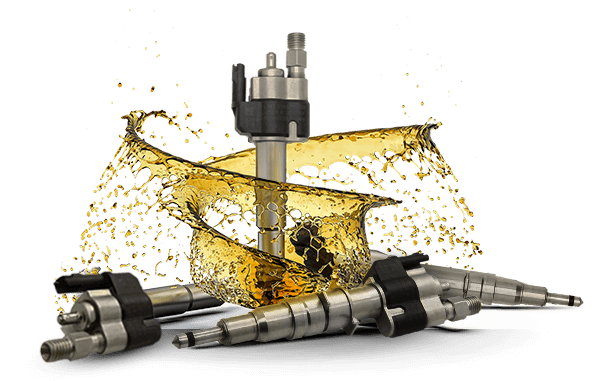Volkswagen and Audi enthusiasts are well aware of the benefits that come with direct fuel injection (DFI) systems, which improve engine efficiency and performance by delivering fuel directly into the combustion chamber. However, like all parts, fuel injectors are subject to wear and tear over time. Recently, we’ve seen a trend with certain direct fuel injectors for Volkswagen and Audi models that requires attention, specifically those manufactured by Continental and Hitachi.
This article dives into common issues, especially those affecting older Continental and Hitachi injectors, which seem to experience failure at a much higher rate than their Bosch counterparts.
Why Are Some Injectors Failing More Than Others?
Our testing has shown that Continental and Hitachi injectors tend to exhibit a higher incidence of rich fuel mixture issues as they age. Over time, these injectors have a tendency to flow more fuel than necessary, resulting in a “rich” fuel mixture. This condition can negatively impact engine performance, increase fuel consumption, and lead to emissions issues.
Unlike the Bosch injectors, which typically we see fare better in testing, the rich mixture issues with Continental and Hitachi injectors often make them irreparable. Unfortunately, no amount of cleaning or testing can fully restore an injector that has developed an over-fueling issue due to mechanical wear or internal degradation.
Why Testing and Cleaning Is Important
The only reliable way to determine the health of your direct injectors is through professional cleaning and testing. Cleaning helps remove carbon deposits and other contaminants, while testing validates the fuel flow and spray pattern to ensure they are within acceptable ranges. However, based on our experience, injectors from Continental and Hitachi frequently fail these tests, flowing too much fuel even after thorough cleaning.
Our Recommendation: Replacement Is Often the Best Option
Given the frequency of failures we see, our strongest recommendation is to replace Continental or Hitachi injectors with new OEM injectors whenever possible. This proactive approach not only ensures the injector's reliability but also provides peace of mind that your vehicle’s fuel system is operating optimally. Replacement may cost more upfront, but it prevents ongoing expenses related to failed injectors and eliminates performance or fuel efficiency issues caused by a rich mixture.
Important Note on Cleaning and Testing Services
When choosing to clean and test injectors, it’s important to remember that you are paying for the service, cleaning and accurately testing, not a guaranteed result. We are highlighting this information because of the high likelihood of test failure with Continental and Hitachi injectors, and there is no refund in service due to test failure.
Final Thoughts
I am bringing you this article to help you understand what you have, and what I see in the shop in an effort to save you time and money in the long run. Though testing and cleaning are invaluable services, for the Continental or Hitachi direct fuel injectors, replacement is often the more cost-effective and dependable solution in the long run.If you need help identifying which direct injector you have please contact us.

